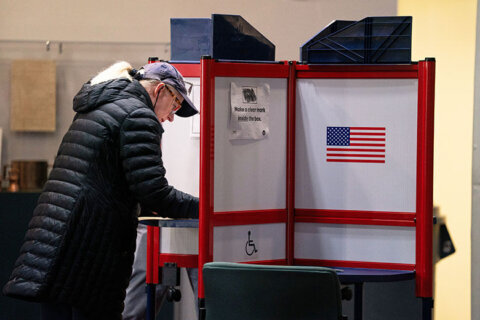Anxiety and depression have become a daily struggle for more than a quarter of Northern Virginians, but many are having a tough time taking the first step to get help.
“Levels of anxiety and depression in Northern Virginia are very high,” said Elizabeth Hughes, senior director of insight region for the Community Foundation for Northern Virginia. “Prior to the pandemic, around 8% of adults had active symptoms of anxiety and depression. In fall of last year, that number was 28%.”
Their new report, “Finding Our Way Back to Mental Health,” shows the numbers are the worst for young adults 18 to 30, half of whom are coping with symptoms of anxiety and depression.
While the research comes to over 500,000 adults in Northern Virginia, what about kids?
“We don’t have current data on the rates of anxiety and depression for those under 18 in Northern Virginia, but we know that, historically, rates of depression in this population have been twice that of adults,” Hughes said.
That’s a lot of people struggling.
While many of them will be able to work through the symptoms, others have reached a level where they need help. But many won’t get it.
While finding or affording care is a hurdle for some, many don’t make it that far, as they either don’t realize they need it, or are uncomfortable asking for it.
“It’s difficult for people to know when symptoms have risen to the level where they need professional help for them,” said Hughes, “And we also know that in addition to not being able to recognize symptoms, there may be resistance to recognizing symptoms, there may be individual and community-level stigma and there may be professional risks.”
For example, those in medical, defense, public safety and aviation careers can face real consequences to their professional licensure if they seek out treatment.
She hopes more publicity of the problem will help create solutions.
“We want the private sector, the public sector and everyone in Northern Virginia to think about how they can lean into this issue and start to find solutions,” Hughes said.
It could be aiding the person who needs care to realize they have symptoms, they are not alone, and there is help.
It could also be in educating friends, family and co-workers to be more open to those who may need help.
“Sometimes listening and being that shoulder to cry on can be the really necessary first step,“ said Hughes.
In response to the report, Virginia’s Department of Behavioral Health issued a statement vowing to do what they can:
“The COVID-19 pandemic has tested us all in ways we could have never expected, and continues to do so. We know that Virginians are now more at risk of depression, anxiety, and substance misuse than before the pandemic.
“What is already clear is that despite so many challenges to our system, community behavioral health services will be required even more in the aftermath of the pandemic and beyond. We need to be ready to answer this call, and we are proud to stand with [community service boards], private providers, and other community partners to make sure individuals in Virginia have access to the services they need.”








